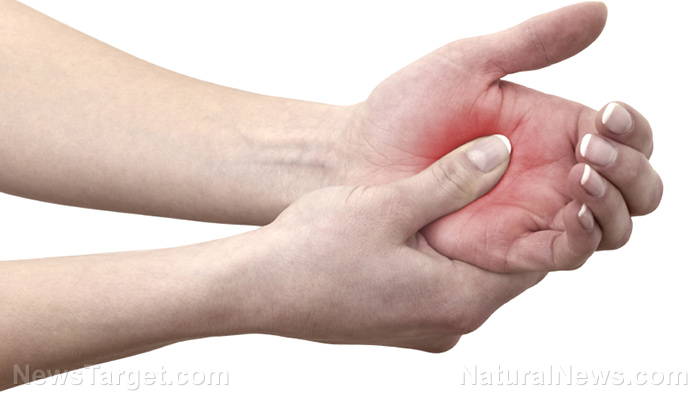CoQ10 demonstrates tremendous health benefits for fighting illnesses like breast cancer and heart disease
11/23/2018 / By Ethan Huff

It’s widely appreciated for its powerful antioxidant and cell-energizing properties. But the nutrient Coenzyme Q10, also known as CoQ10, does a whole lot more than just clean up free radicals and improve cardiovascular function in humans.
Studies indicate that CoQ10 is an amazing anti-cancer nutrient that can help to not only prevent but also reverse breast and other forms of cancer, while also helping to prevent and mitigate heart disease.
Research published in the journal Melanoma Research, for instance, found that patients taking 400 milligrams per day (mg/day) of CoQ10 along with an immune-boosting drug saw their risk of metastasis drop by a much as 1,300 percent – and with no harmful side effects, it’s important to note.
Other studies have found that CoQ10 also helps to slow the growth of cancer tumors. Researchers believe it does this by supporting reductions in inflammation throughout the body, as well as by suppressing the vascular mechanisms inside tumors that keep them alive and functioning.
Conversely, low levels of CoQ10 have been associated with many different types of cancer, including cancer of the breast, lung, pancreas, prostate, kidney, colon, neck, and head. Patients diagnosed with myeloma and lymphoma have also shown signs of inadequate CoQ10 levels, suggesting that a lack of this important nutrient could be a direct cause of disease.
Support the health of your heart with CoQ10
As far as heart disease is concerned, CoQ10 is considered by many to be a “wonder” supplement for heart health. Taking CoQ10 has been shown to help improve the proBNP numbers associated with stressed heart tissue, in turn minimizing the risk of total heart failure and subsequent death.
As we previously reported, the active form of CoQ10, also known as ubiquinol, acts as a powerful deterrent against congestive heart failure. Researchers from Texas found that taking 580 mg/day of ubiquinol increased patients’ plasma blood levels fourfold.
“[T]he improvement in plasma CoQ10 levels is correlated with both clinical improvement and improvement in measurement of left ventricular function,” the team wrote in their paper, which was published in the journal Biofactors.
Another study published in the journal Nutrition and Metabolism found that taking CoQ10 along with other potent antioxidant nutrients such as vitamin C, vitamin E, and selenium helps to improve small and large arterial elasticity, consequently reducing blood pressure levels and decreasing risk of heart attack.
Remember: CoQ10 levels naturally decline with age
The reason why it’s critical to supplement with CoQ10 in order to obtain these benefits is that levels of this antioxidant enzyme, which is naturally produced by the body, tend to decline with age. This means that the elderly are especially in need of it in supplemental form, as it can help to restore natural balance.
Life Extension Magazine points to published science in claiming that a proper CoQ10 regimen can help to add as many as nine additional years onto a person’s life, which is certainly nothing to scoff at.
For this reason, CoQ10 is often referred to as “the longevity factor” – an anti-aging powerhouse that helps to protect not only the heart, which is critical for maintaining human life, but also the entire cellular system.
“There is evidence for CoQ10’s protective effects in the brain and nervous system, in asthma and chronic lung disease, in diabetes and the metabolic syndrome, on ocular health, and even on the aging immune system,” Lina Buchanan writes for Life Extension Magazine.
“Most excitingly, there’s early support for the idea that CoQ10 supplementation can extend the life span of both primitive animals and mammals, laying the groundwork for a similar pro-longevity effect in humans.”
Learn more about how to support your health naturally at NaturalCures.news.
Sources for this article include:
we previously reported NaturalNews.com
Submit a correction >>
Tagged Under:
aging, anti-aging, breast cancer, cancer, Cardiovascular, Coenzyme Q10, CoQ10, disease, enzyme, healing, heart disease, heart health, immune system, inflammation, longevity, Nutrient, supplement, supplements, ubiquinol
This article may contain statements that reflect the opinion of the author
RECENT NEWS & ARTICLES
COPYRIGHT © 2017 LONGEVITY NEWS





















